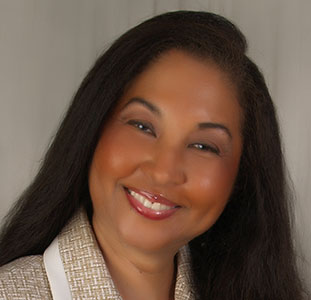New Land Trust Board Member Helps Students, the Underserved Tackle Climate Change
Opinion Advocates for ideas and draws conclusions based on the author/producer’s interpretation of facts and data.

By Michael Gold
The Westchester Land Trust (WLT) has added a new voice to the conversation about how to combat climate change, with the selection of Diana Kaye Williams to the WLT’s board.
Williams, a Mount Vernon resident, joined the Land Trust’s board of directors in June. She is the director of a program to educate and advise residents on installing green energy heat pumps in New Rochelle and Mount Vernon, called Adopt Clean Energy (ACE). Williams is the president and co-founder of Comrie Enterprises, which advises building owners and municipalities on installing clean energy solutions, among other services.
She is also the co-founder of Environmental Leaders of Color (ELOC), which started the Student Summer Energy and Environmental Program for Teens in 2021. This year, the program educated students in Port Chester, Mount Vernon, New Rochelle and Yonkers on the impacts of climate change, the benefits of green energy and the degrading effects of plastic, among other topics.
The program will continue into 2023 and onward, with plans to expand to other Westchester communities.
ELOC offers an annual award to a student planning to study engineering in college, with aid and job opportunities for the grant recipient, to finance their education.
“Conservation is a very important part of fighting climate change. We need to protect as much greenery in our community as possible,” Williams explained. “The Westchester Land Trust is a very powerful voice. They can help us get out the message on climate change.”
Climate change “is something we have to address and make a priority,” Williams said.
“I want to be able to encourage residents to learn what is going on. We are teaching kids from underserved communities about climate change. They often lack the resources to protect themselves. We want to encourage them to become environmental leaders. We’re doing a bottom-up movement, to give this effort a voice. We have a chance to change more minds.”
For their final projects, kids at the 2021 summer program were asked to envision life in 2050, in the form of a podcast from the future. Their fantastical nightmare scenarios included people and even cities living under giant domes, the need for people to wear gas masks to breathe, buying fashionable hazmat suits, the possibility of living under the ocean and sending people to Mars to live.
The purpose of the exercise was not to upset the students; it was to motivate them and everyone else to figure out a way to decrease their carbon emissions.
The curriculum for the summer program is designed to help the students “enjoy the process, the act of discovery,” with conducting experiments, making poster art and doing other fun activities, Williams said, because many kids say they don’t like science.
ACE’s heat pump campaign program in Mount Vernon and New Rochelle is part of New York State Energy Research Development Authority’s (NYSERDA) clean heating and cooling campaign to decrease the use of fossil fuels. There are two types of heat pumps – air source and ground source, also called geothermal.
In the summer, air source heat pumps take air from the inside of your house and send it outside. In winter, they take warm air and transfer it inside. Ground source heat pumps take heat from the ground in cold weather and pull it into your house for warmth. In the summer, ground source heat pumps take heat from your house and send it underneath the surface.
Heat pumps use no fossil fuels, so homeowners never have to worry about the price of oil or gas again, and they’re obviously much better for the climate.
“It’s kind to the planet,” Williams said.
WLT’s program resonates with Williams because of the relative lack of greenery in Westchester’s cities, from New Rochelle to Yonkers.
“In upstate New York, there are acres of farms,” Williams said. “New York City has Central Park. Mount Vernon, with four square miles and 77,000 people, needs to come up with creative ways to provide more green space.”
Williams, who is on the front lines of the impacts of climate change on communities of color, is determined to work hard to fight its effects.
“I know that consumers can change direction, like with tobacco. People became aware that cigarettes are linked to lung cancer, illness and sickness. We need more of that awareness in our community. Let’s look at what the petroleum industry is doing. Plastics are linked to many types of cancer. I wonder, are they (fossil fuel corporation executives) concerned about their own children, their own families? We are a community that cares about the climate.”
“Diana brings a suite of experiences and expertise that we did not have in our leadership,” said Kara Hartigan Whelan, WLT’s vice president. “I am excited to tap into that, particularly in community engagement in our towns and cities, and what the land trust’s role is in renewable energy.”
Williams will conduct a lunch-and-learn session about renewable energy with WLT staff in October.
WLT recently received a $25,00 grant from the New York State Nature Conservancy, a land preservation nonprofit, to support land protection in Westchester and eastern Putnam counties.
Pleasantville resident Michael Gold has had articles published in the New York Daily News, the Albany Times Union, The Virginian-Pilot, The Palm Beach Post and The Hardy Society Journal, a British literary journal.

Examiner Media – Keeping you informed with professionally-reported local news, features, and sports coverage.

